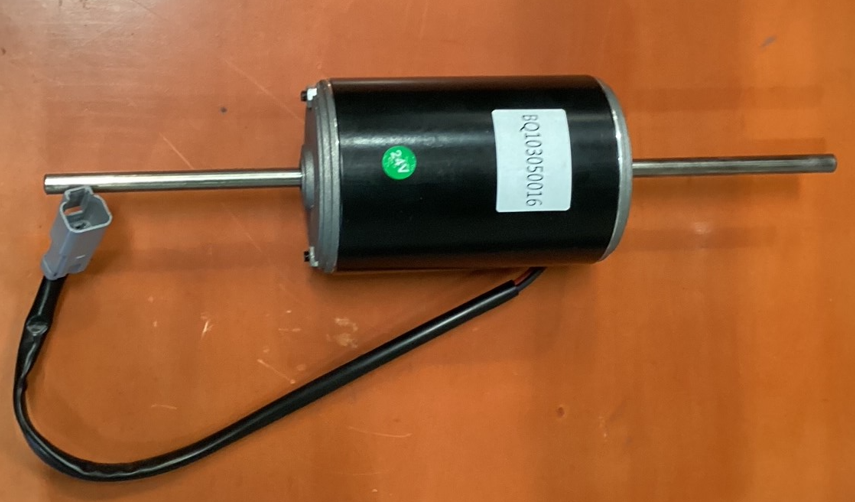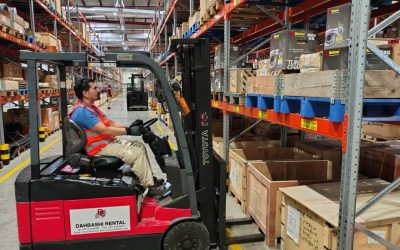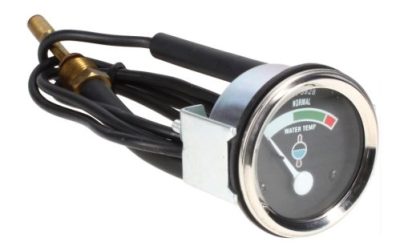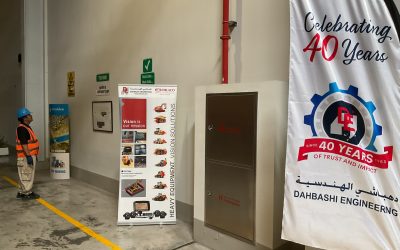Keeping Cool Under Pressure: AC Maintenance Tips for Heavy Equipment
In the Gulf region, where temperatures often soar past 45°C, air conditioning in heavy equipment isn’t just about comfort — it’s a critical safety and performance feature. For operators spending long hours inside machines like excavators, graders, and bulldozers, a functioning AC system can mean the difference between safe operation and heat exhaustion.
But these systems don’t maintain themselves. Constant exposure to dust, vibration, and extreme heat takes a toll. Without routine maintenance, AC failure is inevitable — and that means downtime, discomfort, and costly repairs.
Here’s a focused guide to maintaining heavy equipment AC systems, especially for the harsh environments of the UAE and Middle East.
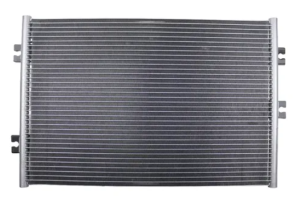 Clean and Inspect the Condenser Coil
Clean and Inspect the Condenser Coil
Dust and sand build-up on the condenser coil is a common culprit behind weak cooling performance. Routine cleaning is essential to maintain heat exchange efficiency. Watch for signs of corrosion or physical damage, especially after sandstorms or heavy-duty operation.
Replace Cabin Air Filters More Frequently
Dusty air can clog filters quickly, straining the blower and choking off airflow. For machines operating in desert conditions, filters should be inspected and replaced more often than manufacturer guidelines recommend. Don’t wait for airflow to drop — stay ahead of it.
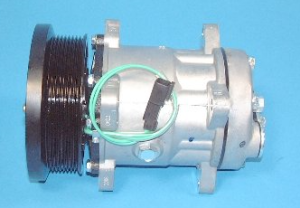 Check the Compressor’s Health
Check the Compressor’s Health
A failing compressor can cause system-wide issues. Listen for abnormal noises like grinding or squealing. Ensure the compressor engages smoothly and is maintaining consistent pressure.
Monitor Refrigerant Levels and Look for Leaks
Low refrigerant is a red flag. It reduces cooling efficiency and can overwork — or even damage — the compressor. Regularly inspect lines, fittings, and the receiver-drier for signs of leakage.
Clean the Evaporator Coil
Hidden deep within the system, the evaporator coil can become a breeding ground for mold and a magnet for fine dust. Seasonal cleaning helps maintain airflow and prevents foul odors inside the cabin.
 Tighten Electrical Connections and Replace Fuses
Tighten Electrical Connections and Replace Fuses
Rugged terrain and constant vibrations can loosen connections or wear out fuses. Periodic inspection of the electrical system ensures uninterrupted performance and avoids sudden AC shutdowns.
Inspect Belts and Pulleys
Worn or misaligned belts reduce compressor efficiency and can eventually snap, shutting the system down. Check for cracking, slipping, and ensure proper belt tension.
Seal the Cabin Properly
All the cooling in the world won’t help if your cabin isn’t sealed. Cracked door seals or open vents allow hot air and dust to seep in, overburdening the AC and compromising operator comfort.
Additional Considerations for Harsh Environments
- Shorter Maintenance Cycles: High temperatures and sandstorms demand more frequent checks. Don’t wait for seasonal service — build a proactive schedule.
- Dust Protection Measures: Invest in enhanced filters or dust covers to extend system life.
- Operator Training: Operators are the first to notice a weak AC. Train them to report issues early before small problems escalate.
AC Components That Require Regular Attention
A properly functioning AC system relies on several interconnected components — each one essential to performance. The compressor is the heart of the system, circulating refrigerant through the condenser coil, evaporator, and refrigerant lines. The cabin air filter ensures clean airflow, while the receiver drier removes moisture and contaminants. A well-maintained blower motor and condenser fan are critical for air distribution and heat dissipation. Finally, the AC belt and associated pulleys keep everything in motion. If any one of these components fails, cooling performance suffers and downtime becomes a real risk.
Final Thoughts
In hot and dusty regions like the UAE and wider Middle East, keeping your equipment’s AC system in peak condition isn’t optional — it’s essential.
A solid preventive maintenance plan not only reduces downtime but also ensures your operators can work safely and efficiently in some of the world’s most demanding environments.
